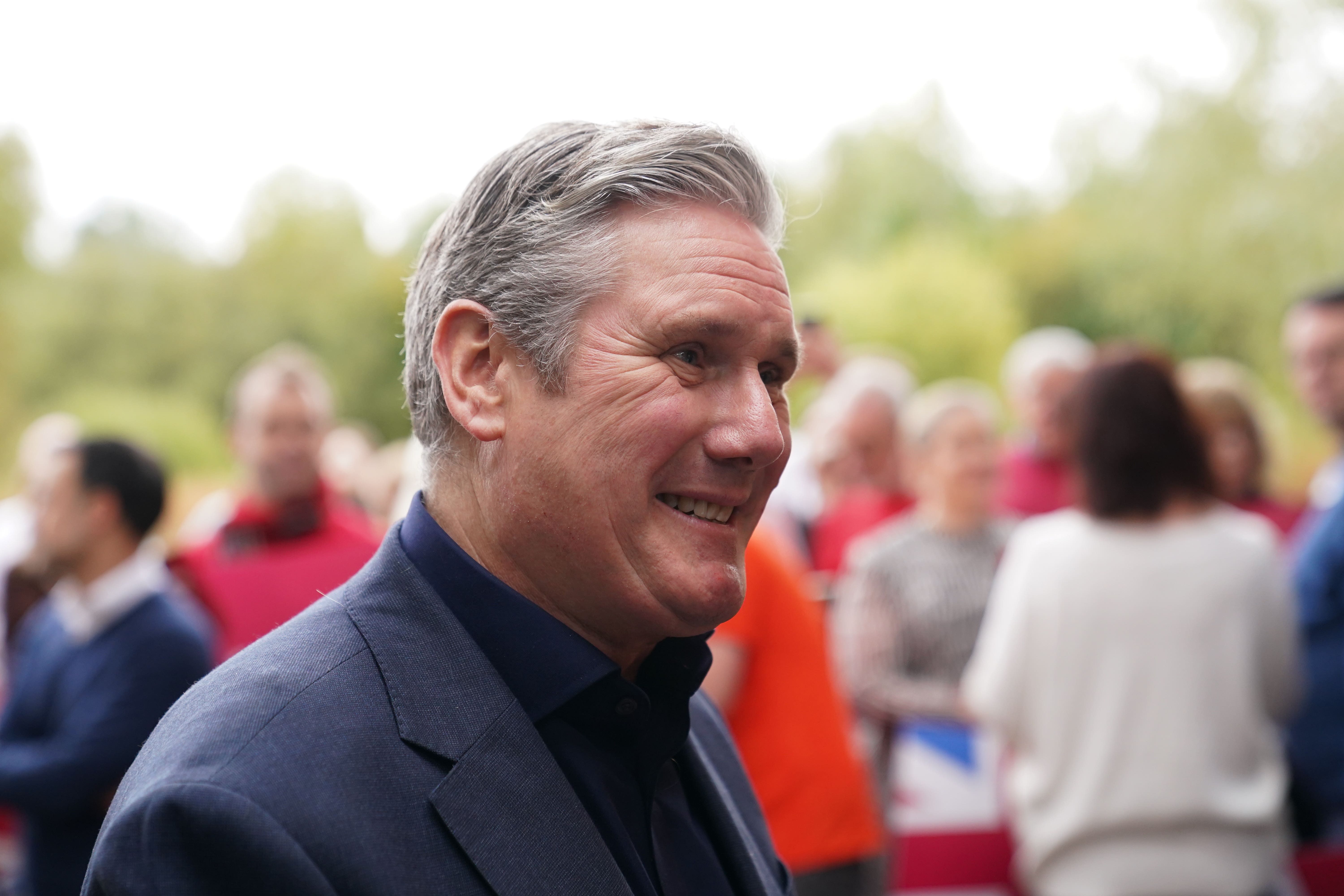Keir Starmer’s Labour must be careful not to fall into the Neil Kinnock trap of complacency
So far, the Labour leader has done well not to take his party’s assumed victory for granted, writes Andrew Grice. But he must be vigilant: as other centre-left campaigns have found, hubris can undermine even the most secure-looking outcome


After Labour’s spectacular by-election victories in Tamworth and Mid Bedfordshire, there is a growing feeling among its senior figures that the general election is now the party’s to lose.
However, growing confidence is accompanied by a nagging doubt. If the Conservatives can’t win the election, Labour could still throw it away. The feeling stems not from natural pessimism, but from logic: Labour has previously suffered the crushing disappointment of losing in opposition when it thought it was on the brink of power.
So when Keir Starmer repeatedly orders his party not to show an ounce of complacency – and berates staffers who dare to say it is going to win – he is not going through the motions. For the most part, his party obeys his edict. But Peter Mandelson, the former cabinet minister and an architect of New Labour, spotted worrying signs at the party’s Liverpool conference this month that many Labour figures felt the election had already been won. “That is so poisonous, it is so corrosive for a party,” he told Times Radio.
“It leads you into traps and mistakes. It makes you feel, ‘Well, actually, it doesn’t matter if we just make ourselves sort of half better, or half appealing, or put this policy half right.’ You know – ‘Let’s sort of split the difference between appealing to the public and keeping the party happy.’ That is such a danger for the Labour Party.”
Morgan McSweeney, Labour’s campaign director and Starmer’s most influential adviser, has studied closely three elections that centre-left parties should have won but lost: Labour in 1992, Hillary Clinton in the 2016 US presidential race, and Bill Shorten’s Labor Party in Australia in 2019.
The two elections seared into Labour minds are 1992 – when the opinion polls pointed to the party gaining power, but Neil Kinnock lost to John Major – and 2015, when Ed Miliband was confident of becoming prime minister but David Cameron won an overall majority.
Kinnock, who resigned after his second election defeat, is doomed to be for ever associated with complacency. His triumphalist rally in Sheffield a week before the 1992 election is widely viewed as the embodiment of it. When he received an ecstatic reception, he appeared to shout: “We’re alright, we’re alright,” and the 10,000 jubilant supporters bellowed the same back.
I was there, covering Kinnock’s campaign on the road for three weeks. At the time, I didn’t think it smacked of complacency. I remember lots of noise, lots of flags, and thinking that UK politics was getting like America’s. Certainly, there was confidence in the air – overconfidence, as it turned out. But parties have to believe.
Appearing to shout “We’re alright” was a mistake, as it could be translated as “We’re going to win.” That was not what Kinnock intended; he insists he said “Well, alright,” as a rock or jazz singer would do, to quieten the noisy crowd so he could begin his speech.
Recently I watched Kinnock talk about the infamous rally, which still haunts him. Interviewed by the think tank UK in a Changing Europe, he admitted doing “a really stupid thing” in trying to calm the crowd, but insisted: “It had no impact whatsoever on the outcome of the election. That is complete nonsense ... It was already lost by then.”
The Labour peer said the rally had attracted negative press coverage only after the election, and the tiny shift detected in the polls that followed the event was in Labour’s favour. He conceded that the rally was “a cock-up from beginning to end”. He was introduced as the next prime minister, despite ordering that this should not happen (Starmer has learnt this lesson: the label was banned at the Liverpool conference).
The lens of history has probably magnified the impact of the Sheffield rally. But not everyone involved in Labour’s campaign entirely agrees with Kinnock. “Sheffield played a small part, but there were lots of other factors,” one insider told me. Referring to shadow chancellor John Smith’s plans to raise tax and national insurance, they recalled: “The shadow Budget was a bigger one than Sheffield. But the fundamental reason was that we were not ready for government; we hadn’t changed enough.”
Some senior Labour figures think complacency was a bigger problem in 2015 than in 1992. Miliband’s team was confident enough to brief me on polling day that he would become prime minister even if there was a hung parliament. Many Tories expected that outcome, but their below-the-radar campaign in the South West gobbled up seats held by their Liberal Democrat coalition partners, and they won a majority. “There is no way we will repeat the complacency of 2015,” one Starmer ally said.
There is another reason why Starmer is right to wage his war: he knows many voters are still unsure about him. Any hint that he is taking victory for granted could push some “don’t knows” into the Tory column.
But I think Starmer’s laser-like focus on winning will ensure that Labour does not repeat its past mistakes.






Join our commenting forum
Join thought-provoking conversations, follow other Independent readers and see their replies
Comments